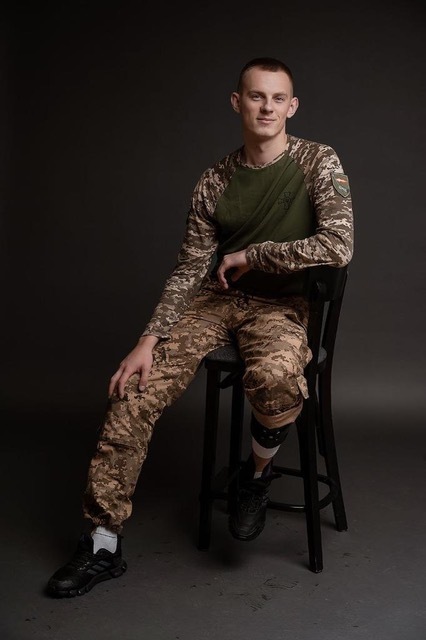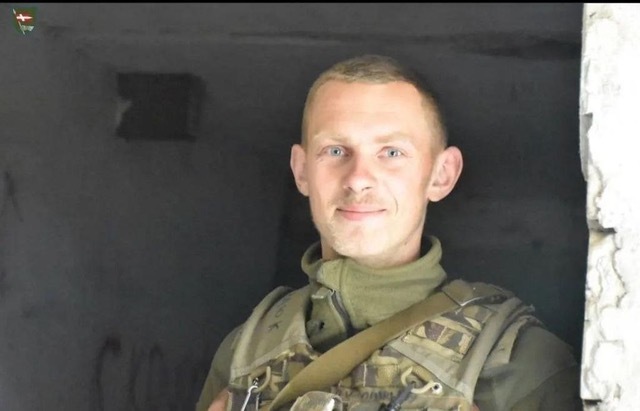
Words by Abi Scaife
Across the world, people are following the situation in Ukraine with bated breath - and there’s no question that those on the front line in Ukraine have been fighting incredibly hard to defend their country.
But in war there are casualties - and many soldiers fighting in Ukraine, and civilians caught up in attacks, have lost limbs in this war. That’s where US-based company OneStep comes in, with their incredible partnership with the Protez Foundation.
OneStep is a healthcare technology app that came out of Tel Aviv, Israel, currently dealing in the United States. Incredibly, their app is capable of measuring your gait - that is, analysing how you walk.
This might not seem like it has the most groundbreaking implications - but when it comes to a number of health conditions, including for those who have lower limb prosthetics, the technology essentially offers a doctor’s practice in a smartphone.

OneStep has partnered up with the Protez Foundation - a non-profit organisation based in the US that provides prosthetics to those who have lost a limb.
“So when we started, we were thinking to fly to Ukraine and go and try to help wounded people who are running away from war zone,” explains Yakov, a Ukrainian ex-pat who is living in the US and working at the Protez Foundation.
Despite their desire to be on the ground, helping those wounded, Yakov and the team didn’t want to be a burden - that’s when they came up with the idea to bring those wounded people to them.
So far, the Protez Foundation has helped 64 patients - including two children and one adult civilian. Thanks to the collaboration with OneStep, 15 of those soldiers are back, fighting on the front line.
It’s worth noting that this is completely funded by donors - and that prosthetics can cost tens of thousands of dollars, depending on how large the prosthesis is. Donations to the Protez Foundation help rehabilitate those who are desperately in need, and couldn’t otherwise afford a prosthetic themselves - plus, it is helping to take pressure off an incredibly stressed medical system back in Ukraine.
“Yakov and I met in the clinic when we were working with some patients together and he saw the power of the technology that we brought forward,” explains Patrick Tarnowski, the Chief Commercial Officer for OneStep. “He put his arm around me, pulled me aside and said ‘Are you familiar with the Protez Foundation?’ I said ‘no, tell me about it.’ And when he got deeper into what they're doing, and asked the question the answer was immediately yes.”

While the OneStep technology is by no means restricted to those with prosthetics - in fact it has had incredible results for those who have had knee replacements, hip replacements and even back surgery - there is no doubt that it has had a hugely positive impact on those who have had limb amputations.
“First and foremost; it's just the right thing to do. There are people in need,” says Patrick. “And we have a technology that can help not only those who have incurred an amputation but also the providers because the providers are also volunteering their time.”
OneStep’s technology helps to provide continuous care to those treated by the Protez Foundation even when they return to Ukraine. For patients who have received prosthetics, it is hugely important that their care continues long after they have their first prosthesis, to ensure that their injuries are healing correctly, that the adaptation fits comfortably, and to keep them from causing themselves further injury.

“I think that [with] this war going on, [the] system is very overwhelmed,” explains Yakov. “Sometimes they are waiting for three, four weeks to be able to get to see a prosthetist or doctor in Ukraine because it’s literally thousands and thousands [of dollars].”
The great thing about the OneStep app is that the patient can see the result of their gait analysis, as well as it being shared with their doctor and prosthetic team. According to Yakov, who works closely with those receiving treatment at the Protez Foundation, this can be a huge moral boost to many of the patients.
“[It] gives them a little win,” explains Yakov. “Yesterday, being a capable younger man who went to war to fight and suddenly ending up in a wheelchair, feeling like a burden for their family, country and themselves. Then they are up, they are walking, and they see [for] themselves how they are improving. And suddenly they see ‘oh, my gait changed five points!’ See that smile? [So] much more happens inside - there's that positive emotion.”
This incredible partnership has so far helped a number of patients who have been injured in the war on Ukraine, including one young patient who clearly remains close to Yakov’s heart.
“[There was a] nine-year-old boy who [had a] rocket strike into their house and they were running to the shelter,” explains Yakov. “Dad was carrying the nine-year-old boy and 12-year-old brother was running next to them … a second rocket hit behind them and killed his father and brother. He lost his left hand that he was holding to his dad with … and we [were able to] restore that hand which is still holding to his dad.”
“This is our responsibility. So together we can make a difference and we can make a better world, better care for these people who shouldn't be injured - who shouldn't be suffering.”
To learn more about OneStep you can visit their website by following this link. To learn more about the Protez Foundation, or to donate, you can visit their website by following this link.
Charity check-in
At Smiley Movement, we like to elevate the work of charities across the world. Here are three charities whose causes align with the themes in this article.
Ukraine Charity. This charity supports underprivileged children and other charitable initiatives in Ukraine. Learn more here.
BritishUkrainian Aid. They support people suffering from the war and humanitarian crisis in Ukraine by aligning UK and Ukrainian efforts. Find out more.
Protez Foundation. This non-profit provides care for Ukrainians who have lost limbs and need prosthetics: from submitting an application through full rehabilitation. Support them here.
This article aligns with the UN SDG Good Health and Wellbeing.